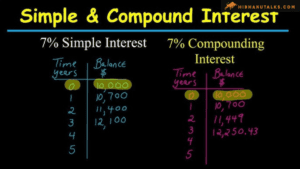
Nike CEO Transition: John Donahoe Steps Down, Elliott Hill Takes Over
Contents
Nike CEO Transition
Nike CEO Transition: John Donahoe Steps Down, Elliott Hill Takes Over


- John Donahoe’s Departure: Nike’s current CEO, John Donahoe, will retire on October 13, 2024, after serving since January 2020. However, he will stay on as an advisor until January 2025 to assist with the transition. The shift comes amidst a challenging time for Nike, where the company’s sales have been declining, particularly in China, and overall consumer demand has been unstable. Nike CEO Transition
- Elliott Hill’s Return: Elliott Hill, who worked at Nike for 32 years and retired in 2020, will replace Donahoe. Hill is regarded as a strong internal leader who understands Nike’s culture, employees, and marketplace dynamics. He brings substantial experience as the former president of Nike’s consumer and marketplace division, overseeing major operations for both Nike and the Jordan brand.
- Nike’s Financial Situation: Nike has faced financial turbulence in recent quarters. When they reported a 10% sales drop for the fiscal fourth quarter, their stock plummeted, causing concerns about Donahoe’s future. However, Donahoe’s leadership did see some positive outcomes, such as an increase in annual sales from $39.1 billion in 2019 to $51.4 billion in 2024, driven largely by digital transformation during the pandemic.
- Challenges Ahead for Hill: Hill faces several challenges, including rebuilding company morale, refocusing on innovation, and navigating Nike through a broader restructuring plan. This restructuring aims to cut costs and boost growth in key areas like running, the women’s category, and the Jordan brand. Nike CEO Transition
- Nike’s Direct-to-Consumer Shift: Under Donahoe’s leadership, Nike shifted its focus from wholesale distribution to direct sales through its stores and e-commerce platform. This move initially paid off, particularly during the pandemic, but it also alienated some wholesale partners, creating space for competitors like On Running and Hoka to capture market share.
- Phil Knight’s Confidence: Despite some setbacks, Nike’s co-founder, Phil Knight, expressed confidence in Hill, praising his leadership and familiarity with Nike’s culture. Hill’s leadership is expected to rejuvenate Nike’s business by restoring morale and creating innovative products that will drive growth and captivate consumers.


Advantages of Elliott Hill’s Appointment
- Company Veteran: Hill is deeply familiar with Nike’s operations, culture, and market strategy, giving him a significant advantage in managing the transition smoothly.
- Proven Leadership: Hill’s long tenure and previous executive roles suggest he can provide the kind of leadership Nike needs, especially during tough times.
- Rebuilding Morale: Hill’s close connection with employees and understanding of the company’s values could help rebuild a sense of morale and unity within the workforce.
- Innovative Vision: Hill is known for his passion for Nike’s products, which could steer the company back to focusing on innovation and creating the groundbreaking sneakers that made Nike famous.
Disadvantages of Elliott Hill’s Appointment
- External Market Challenges: Despite Hill’s strengths, Nike is facing external pressures like decreased demand in key markets such as China and growing competition from newer brands, which may be difficult to overcome.
- Internal Restructuring: Hill will need to manage Nike’s ongoing restructuring efforts, which involve significant cost-cutting measures, including layoffs, potentially leading to further dips in employee morale.
- Fixing Wholesale Relationships: Nike’s direct-to-consumer shift during Donahoe’s tenure led to strained relationships with wholesale partners. Hill will need to navigate repairing these relationships while maintaining the momentum in direct sales.


Conclusion
Elliott Hill’s return as CEO is seen as a positive development for Nike. His extensive experience and deep ties to the company make him well-suited to lead during this transitional phase. However, he faces significant challenges, including rebuilding internal morale, refocusing on innovation, and addressing competitive pressures in a difficult economic environment. The success of Hill’s leadership will likely depend on his ability to balance these demands while continuing to drive the company’s growth in key categories.
FAQs
- Why is John Donahoe stepping down as CEO?
- John Donahoe is stepping down to retire after leading Nike since January 2020. He will remain as an advisor until January 2025 to assist with the transition.
- Who is Elliott Hill, and why is he the new CEO?
- Elliott Hill is a 32-year veteran of Nike who retired in 2020. He has been brought back to lead the company due to his deep knowledge of Nike’s culture and operations. Hill is known for his leadership in the consumer and marketplace division.
- What challenges does Nike face moving forward?
- Nike is grappling with declining sales, particularly in China, strained relationships with wholesale partners, and competition from emerging athletic brands. Internally, the company is undergoing restructuring to cut costs and refocus its strategy.
- What was John Donahoe’s impact on Nike during his tenure?
- Under Donahoe, Nike’s annual sales grew from $39.1 billion in 2019 to $51.4 billion in 2024, largely due to the company’s digital transformation and focus on direct-to-consumer sales. However, this strategy also alienated some wholesale partners, leading to market share loss to competitors.
- How will Elliott Hill address Nike’s current struggles?
- Hill is expected to focus on rebuilding employee morale, fostering innovation in Nike’s products, and strengthening relationships with key wholesale partners while navigating the company through its restructuring efforts.
Nike CEO Transition





















Post Comment